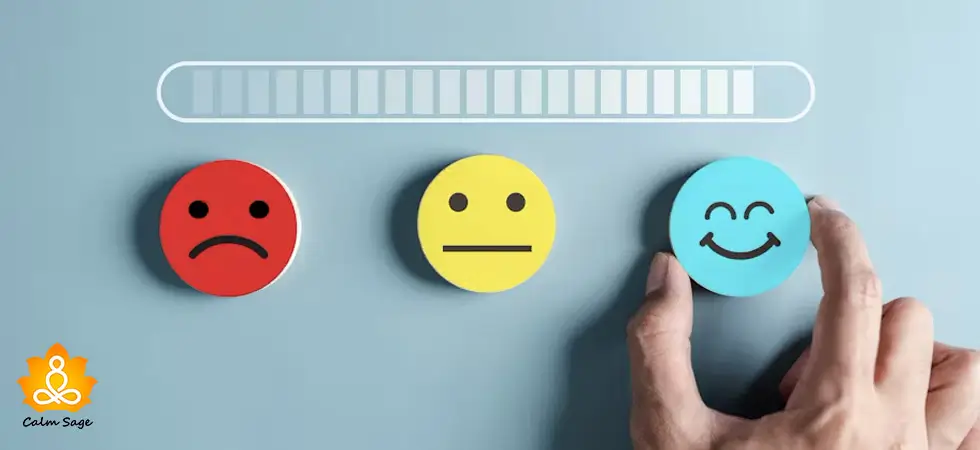The Dunning-Kruger Effect: What’s it All About?

We all know that smarty-pants, the Know-It-All – who always think they know everything about a topic, only to realize that they’re missing the critical information of it all. Or perhaps, you’re the one, who’s had those moments of doubt about your topic of expertise. All these experiences reflect the fascinating phenomenon known as the Dunning-Kruger Effect.
This Dunning-Kruger effect is a cognitive bias that influences how we perceive our capabilities.
Simply put, cognitive biases are the patterns of deviation from rationality in judgment, stemming from mental shortcuts and info-processing errors. These biases can impact our decision-making, perception, and behavior, shaping our understanding of the world.
Today, we’re taking a look at one such bias – the Dunning-Kruger effect – and how it can affect our decision-making and behaviors. So, ready to go into the theories of psychology with this cognitive bias? Let’s get started!
What is The Dunning-Kruger Effect?
This effect was first identified by psychologists David Dunning and Justin Kruger in the late 1990s, hence the name. The Dunning-Kruger effect refers to the tendency of people with low ability in a particular field, industry, or domain to overestimate their competence and knowledge, while people with high ability might underestimate theirs.
All in all, this cognitive effect highlights the disconnect between your actual skill levels and your perception of it.
Now, to understand the Dunning-Kruger effect better, here’s a scenario for you. Imagine a novice painter confidently announcing their mastery of the art after finishing a few projects.
Conversely, a seasoned painter might downplay their skills despite the evidence of their masterpieces. This scenario just brings the Dunning-Kruger effect into action, explaining how people at different skill levels can show distorted perceptions of their abilities.
What Research Says…
Since its conception, researchers have conducted studies after studies to understand the intricacies of the Dunning-Kruger effect. These researches determined the manifestation of the effect across different fields – ranging from intellectual abilities to academic performances, and from social skills to professional ones. The consistent finding has, more or less, cemented the understanding of this cognitive bias and its implications on our behaviors.
The Dunning-Kruger can affect more than just your self-perception. People with this bias can show overconfidence in their abilities, leading to misguided decisions, poor judgment, and even more harmful outcomes. For example, a novice investor might overestimate their knowledge of the financial markets, leading to risky and impulsive decisions, investment choices, and even financial losses.
Why Does it Happen?
Several reasons can be behind this cognitive bias and phenomenon. Some common reasons why the Dunning-Kruger effect happens can include;
1. Lack of Metacognition:
One reason behind the Dunning-Kruger effect is the lack of metacognitive skills – the set of skills that involve the ability to reflect on and assess your knowledge and performance. Without this self-awareness, you may struggle to recognize your limitations and inaccurately gauge your competence.
2. Limited Experience:
Another factor that can contribute to the Dunning-Kruger effect is limited feedback and experience. In your early stages of skill development, there is hardly any feedback or experience gained. Without constructive feedback and exposure to different challenges, you might overestimate your abilities based on limited information.
3. Confirmation Bias:
Moreover, confirmation bias can also play a huge role in causing the Dunning-Kruger effect. We tend to seek confirmation about the information we gather on our pre-existing beliefs while disregarding the contradictory evidence. This selective attention can only fuel our overconfidence and hinder appropriate self-assessment.
Now, when it comes to who gets affected the most by the Dunning-Kruger effect, there is no particular answer. People across various age groups, professions, and skill levels can be influenced by this cognitive bias.
From students overestimating their academic performance to professionals overestimating their expertise, no one is immune to the Dunning-Kruger effect.
However, personality traits and cultural influences can moderate the extent to which you might be influenced by this cognitive bias.
Is The Dunning-Kruger Effect Real?
Critics might have questioned the validity of the Dunning-Kruger effect by arguing that it oversimplifies the complex nature of human cognition, but various researchers have done studies that support its existence and relevance in human behavior.
Several studies from different contexts and methodologies have consistently demonstrated that the Dunning-Kruger effect exists, lending credibility to its status as a cognitive bias.
The Dunning-Kruger effect is also often mistaken for the imposter syndrome. While this cognitive bias mostly involves overestimating your capabilities, imposter syndrome includes feeling inadequate or incompetent despite evidence of success and competence.
Despite the contrasting presence, these two effects share a thread of distorted self-perception. People with imposter syndrome might downplay their achievements, while people with the Dunning-Kruger effect might inflate their capabilities and knowledge.
Overcoming the Dunning-Kruger Effect
So, if you’re thinking resonates with the Dunning-Kruger effect, then here are some ways you can change your perception and overcome the Dunning-Kruger effect;
1. Seek Constructive Feedback:
Try to actively seek constructive feedback from your peers, mentors, or experts in your field to gain a better understanding of your abilities and knowledge. Welcome any feedback you get, as it’ll help you identify blind spots and areas for improvement.
2. Work on Metacognition:
Develop metacognitive skills through practices such as self-reflection, goal-setting, and continuous learning. Cultivate your awareness of your cognitive strengths and weaknesses, as it’ll help you get a more realistic view of yourself and self-perception.
3. Be Open-Minded:
Maintain a humble and open view to any new perspectives and recognize that knowledge never stops, is dynamic, and ever-evolving. Embrace any opportunity you get for mental growth, and understand that mastery over anything needs ongoing effort and dedication.
Wrap Up…
Human cognition is complex, but understanding how the Dunning-Kruger effect plays a role in our thinking can give you insights into self-perception and competence. By knowing the influence of this bias and working with practices to mitigate its effects, you can make better decisions, learn genuine information, and ultimately strive for better self-awareness and mental growth.
Sounds fascinating, doesn’t it? Let us know what you think about the Dunning-Kruger effect and its role in behaviors and decision-making in the comments below.
Take Care!




















